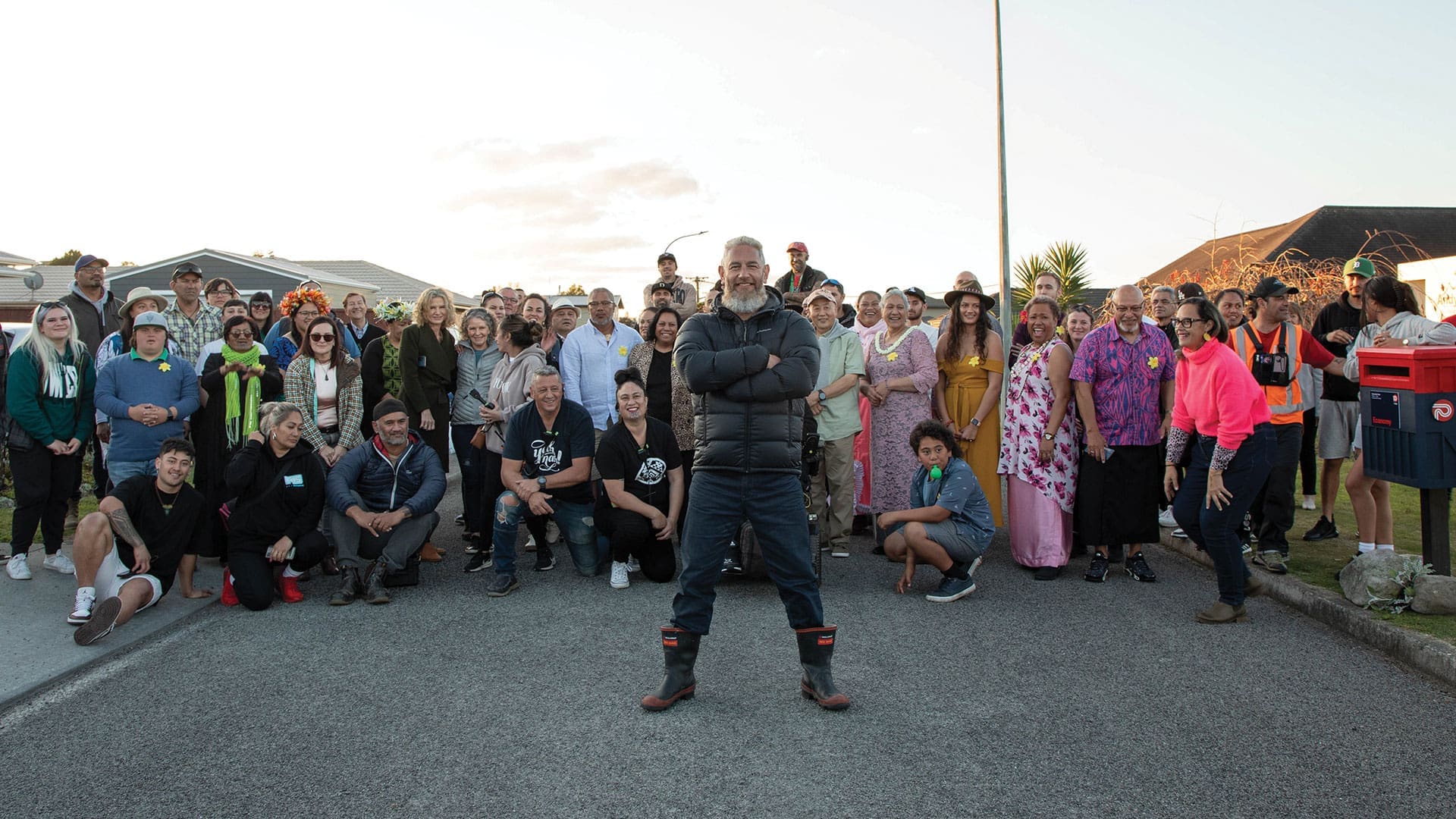Dreaming Big With One Of NZ’s Top Creative Agency
Established by Rongopai and Inia Maxwell, Rotorua-based creative agency, Wawata Creative is changing the relationship between advertising and indiginous stories and values. Rather than being a bolt-on afterthought for a campaign, Wawata incorporates a foundation of Māori culture into not only their creative approach but also long term business.
We talk to Inia about using advertising to share indigenous stories in an empowering way, the importance of humour, a growing distrust of the mainstream and going back home to Rotorua to change the world.
Can you talk a little bit about the power of advertising for what you do?
There are many forms of advertising and areas where you can get messaging out there and change behaviour, which is usually with government business. And then you’ve got your product stuff, retail, So not so much a behaviour change. You have to have different approaches in the way that you do it so there are different beasts to attack.
Being creative, you want to go places and it’s okay to get lost, it’s okay to change your mind, it’s okay to be wrong. If you’re too afraid to be wrong, then you’re not going to go to those places. I think a lot of good creatives are basically big kids that need people to look after them. We don’t want to do all the boring stuff, we just want to dream.
There are many different ways of engaging people and you’ve just got to figure out, depending on the campaign and the idea, what mediums you’re going to use to get that message. It’s very important that you don’t just do what you think is right, but take the insights.
It’s hard to engage people when there’s so much noise out there, especially with Covid. Trying to cut through that for other health messages, there’s a lot of brain space that’s been taken up by all these other things. You need to try and come up with something to cut through. That’s what we’re always looking for, something that cuts through and resonates. Sometimes it might just be to challenge people’s perceptions, to get a discussion happening.
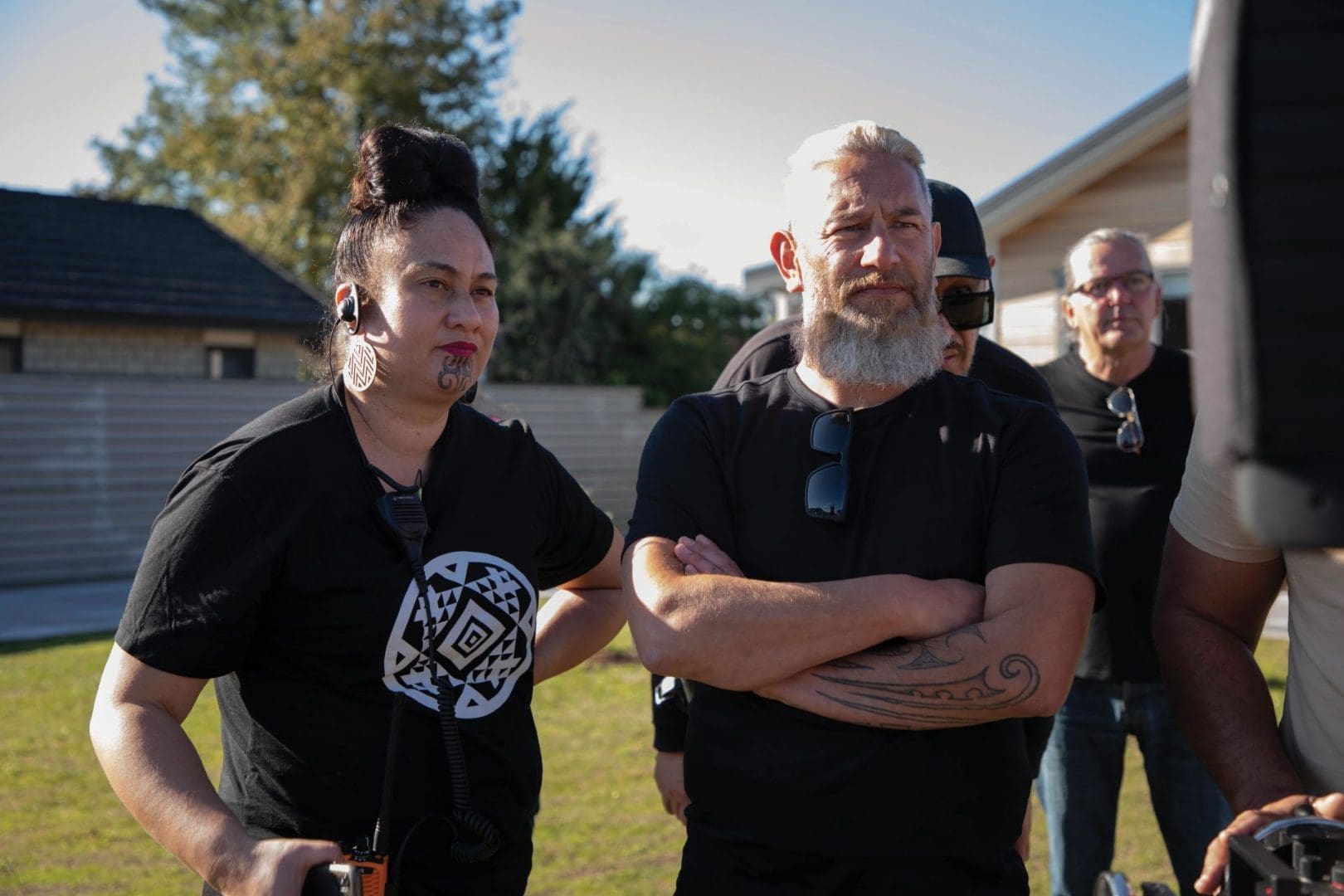
I’ve worked with tourism campaigns. Selling the country, selling what’s unique about us. Māori culture is one of those things that cuts through internationally. Being brought up in a cultural family in Rotorua in the village, it’s a lifestyle. I’ve travelled the world, taking our culture offshore and having cultural exchanges.
Having Sir Howard Morrison as an uncle was never going to be easy for us young fellas because he was always asking us to perform, so we were never afraid to put ourselves out there. I’m very glad that he did that, but he also got me into this industry. He was in Wellington and asked if I had a CV. I said, yep and he said, ‘Well, dress sharp and I’ll see you at Saatchi’s.’
That was my happy accident into the industry. It was back in 1998 and it was baptism by fire. I ended up being a part of the Adidas All Black campaign for the ‘99 World Cup. We infused Māori culture into the All Blacks in a real way for the first time with that campaign. Unfortunately, the boys didn’t come up with their end of the deal and win, but at least it began the journey of it being okay to have the Māori culture within me.
Can you talk about the haka and the influence that you had for the ‘99 World Cup?
Again, that was another happy accident. I’ve been fortunate enough in my upbringing, with my parents being successful kapa haka leaders and leading the most successful kapa haka group in my tribe, Te Arawa, for 35 plus years; they won at nationals a couple of times. It’s in the blood, I was brought up with it and had some amazing experiences. So when I got to be in front of the All Blacks, I came from a real knowing place.
After getting over the fact that I was in the same room as the All Blacks, Taine Randall, who was the captain at the time, asked me to tell the boys what the haka means. So I kicked out management and it was just me and the All Blacks and I told them the whole story. Then I asked them to perform and that’s when my whole attitude changed because it was pretty bad. I said, ‘you guys are representing a whole culture and that’s how you perform it? I’d rather you not do it. This is how you do the haka’. And I took my shirt off and cracked into it. I went down each and every one of them and stuck it to them.
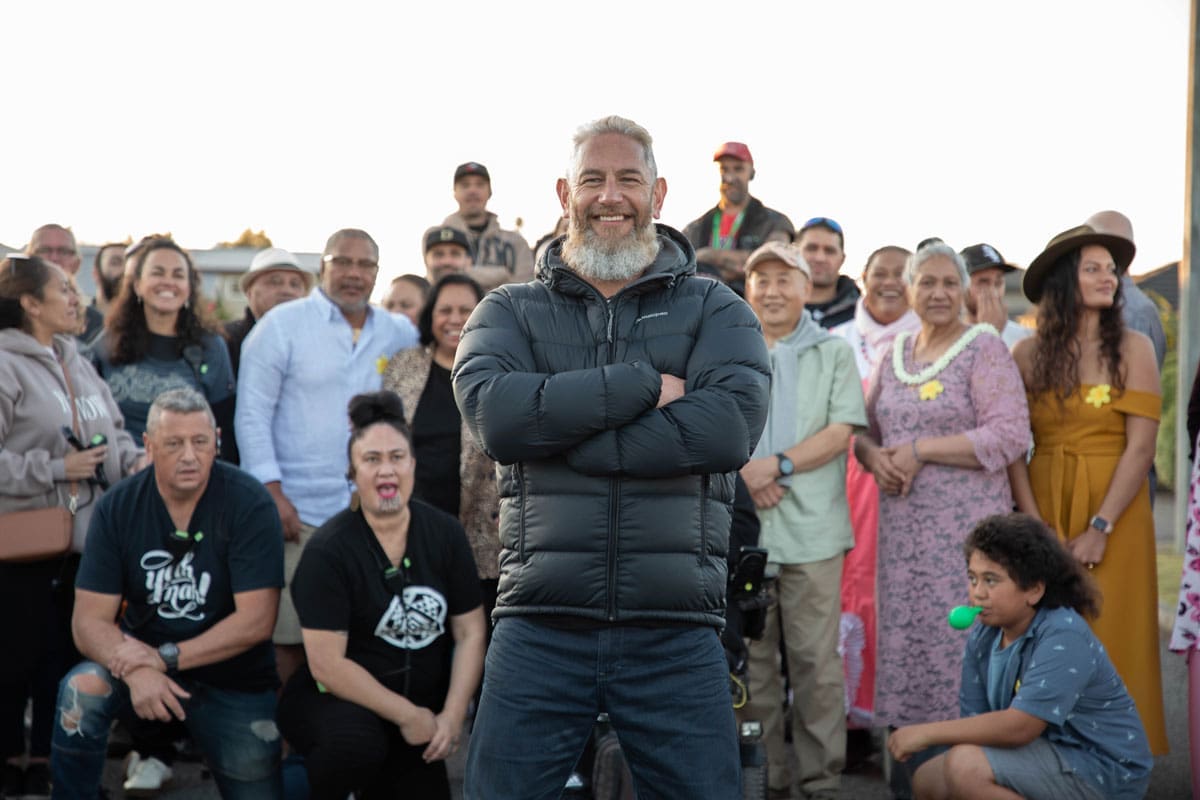
From that point, it was an ongoing relationship of making sure the boys kept growing it, kept passing it on to the new ones that were coming in, and using it to embrace them. It’s pretty daunting for those that aren’t culturally-minded; just because they’re amazing sportsmen doesn’t mean they can do an amazing haka.
You wouldn’t have thought that there would’ve been much consideration for the cultural side of things in the late 90s advertising world. How did you find that?
I found that revealing, I couldn’t believe the lack of knowledge of anything Māori. It was just so far removed, they might as well have come from over in London. It was like you were in another place. But there were the ones who I gravitated to, most of the creators were real people, which was cool.
Then you had the ambitious suits that were career-focused and had no idea. I felt really sorry for them that they had to put on this facade to get up the ladder, it was very dog eat dog.
What I did gain from it was that these guys really kick *** and they don’t muck around. When they commit, they really dive in. I took the good bits that I saw back to my kapa haka.
It was a real learning curve to actually see how Māori culture was a bolt-on to that world. It was just a box tick. There was a lack of sensitivity and consideration and when they did do it, it was just lip service. It’s definitely changed now, which is great. I like to observe and just learn just by watching and I learned so much from some pretty amazing advertising people. And I think vice versa, they learned a lot.
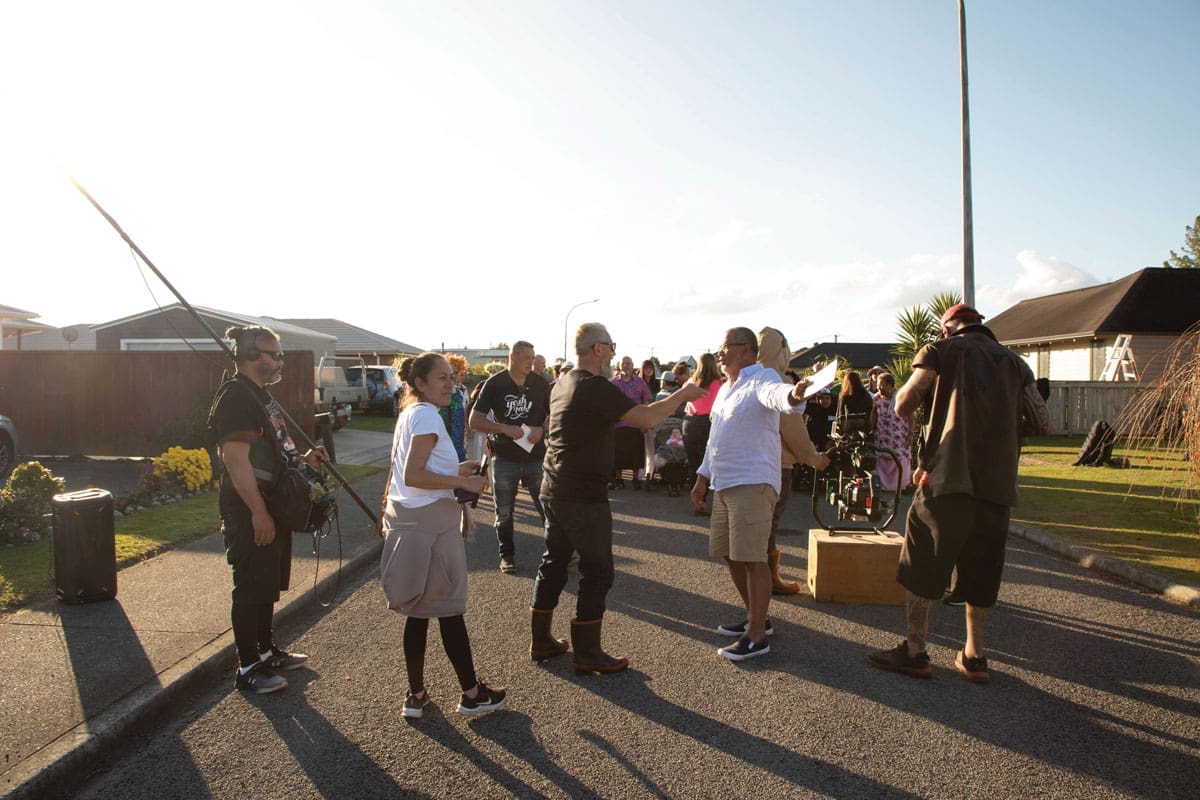
I hope to think that I influenced them too. I gave them some spirit and took them on a journey into Māori culture as well when I could, and slowly it was getting embraced. I don’t think they took complete advantage of that, but I took complete advantage of what they had to offer and to understand the advertising world from every department.
The internet was just a thought back then, but they were forward-thinking enough to start exploring that avenue. That’s where I saw the game changers because it was similar to what we did in the kapa haka world. We were trendsetters with what we were doing in the kapa haka world, flipping stuff on its head and trying new things. That’s why I just really fizzed at Saatchis. I just loved the work ethic there of work hard and play hard.
I then became a father and I took the chance to take a break. I became a stay-at-home dad, which was a privilege, but probably the hardest job I’ve ever had to do. And then after my daughter turned five, I got back into the business slowly. We named it Wawata Creative, which means to dream or imagine. My wife and I decided to get ourselves on the All of Government procurement panel. To be serious contenders in this game, we needed to get ourselves there. It was a lot of mahi, but we were supported by Te Puni Kōkiri. They were amazing in providing us some assistance in the procurement process, because as creatives, it’s not really our fit. We couldn’t do it in our way visually and how we tell our stories, so it was quite hard to shift into that.
Can you talk a little bit about that shift in government procurement? Because there was this major change there to really open it up to other agencies.
It meant an amazing opportunity for us to be able to sail our own waka for our own people. It might be 5% at the moment, but after talking through with TPK, they didn’t want to overcook it and then over promise stuff from Māori perspective, so that we’d get more arrows and tomatoes thrown at us saying, ‘See, they can’t do it’. It was a nice, humble beginning.
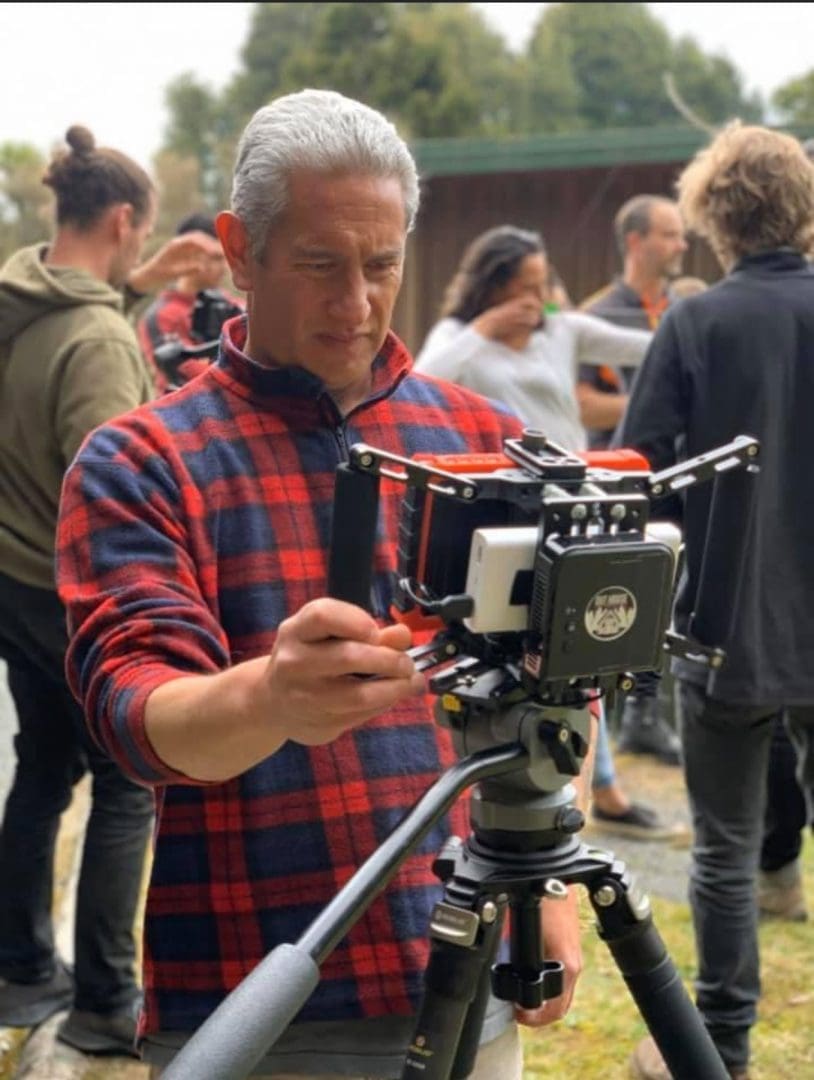
Over the two decades, from being the bolt-on attachment, to where it is now and being on a panel, there’s been a huge shift in meeting and requiring Māori expertise. My timing is probably my best thing. The timing of when my wife, Rongopai, and I made our move and what we are doing now is on the money because from that move, we are right on the field that is happening at the moment.
We’ve proved that with some of the accounts that we’ve managed to secure, they’re very important ones to us. They’re very touchy subjects and we’re using all of our insight and our networks to be able to make sure we get the right messaging, delivery, positioning, tone and manner.
I get a sense that Māori culture intrinsically informs your creative process. Does it also inform your approach to business, even in terms of timeframe?
We’re only the people at the start line, as far as I’m concerned, and that’s after 20 plus years in this industry. We’re at the start line with expertise to burn and it’s a long game. To us, culturally, time is not what it is today. The way that we used to operate in the winter months; we’d harvest around Matariki and then celebrate, have a big kai and then hibernate and learn all of waiata and karakia at that time.
I see us as the pioneers who have been given the chance to change things. The future is what we are all about. Setting up the next generation, building more Māori creativity, more Māori into this industry is definitely a kaupapa I’m very passionate about. I think there’s a lot of talent, imagination, and creativity out there. It’s a great medium to be a part of as well.
Obviously, there are all the different departments that people can get involved in, but that’s definitely a kaupapa at Wawata Creative, for us to grow our people. There are some good designers out there, for example, Te Puia have carvers and they’re learning the hands-on stuff. Give them a Mac at the same time so that they’re not drawing sketches and then giving it to a designer who’s not Māori to then do vector art. Let them become part of that process, have that exchange because it’s the same world. We’re just trying to tell stories through visuals, through audio, through different ways.
It’s about communicating and Māori are pretty good at communicating. Some of the top-grossing movies from New Zealand are Māori stories; Whale Rider, Once Were Warriors, Boy, all game changers. There’s a charm about Māori stuff as well. Taika is showcasing that our humour can be anywhere. It can be accepted anywhere and understood. You don’t have to be Māori to get it. We don’t mind people like Billy T to take the p*** out of ourselves, but then that allows us to take the p*** out of everyone else.
How would you describe that humour?
Raw is one word. The humour can come from anywhere. Very witty and clever. It’s so unique. People can gravitate to it. It doesn’t have to be Māori though. I think it’s a New Zealand thing because you’ve got Flight of the Conchords, so funny; you’ve got The Laughing Samoans, so funny. You’ve got all the movies, like Sione’s Wedding, it’s just our flavour.
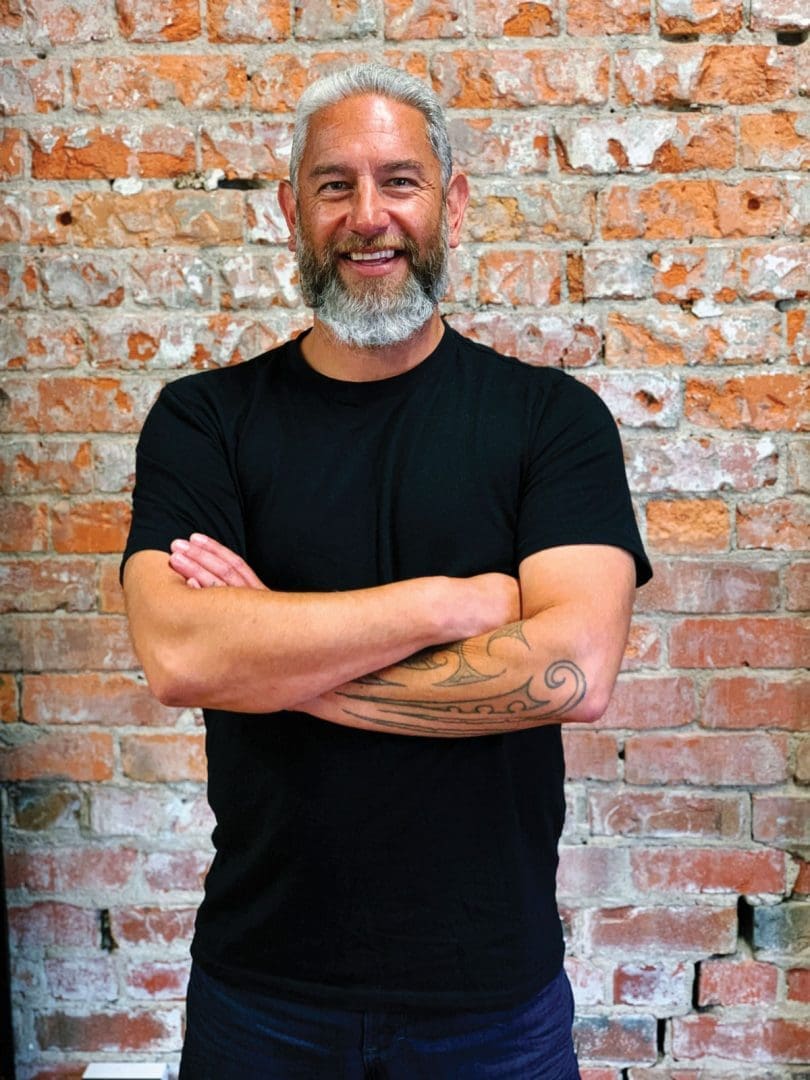
I’m very proud of Māori stories and the game changers, like Merata [Mita] who said, ‘No, we are not just going to be the old native in the background in this movie. We’re going to tell our stories’. The bravery and leadership and rangatiratanga of those people is what I think we are doing in this space. It’s a good space, it’s a hard space but there’s a lot of clever and creative Māori out there that would do really well in this business.
As a happy accident for me, I’ve thoroughly enjoyed my time thus far. I wouldn’t still be doing it if I didn’t have a passion for it. So it doesn’t feel like mahi to me, it feels like I’m making a change with something that I know I do well. It’s not about awards for me, it’s about me getting the creative and the messaging and the outcomes. That’s my job. I just want to really make sure I do good mahi all the time, because I want to put them all up there.
We are being judged from our people at the same time. They’ll always remember that one thing that you didn’t get right and that’s the harshness of our people and the comedy, they can bring you right down. It gives me the grounding when I go home.
In the nineties, you had to go to Wellington to get into the industry. Was it always a conscious decision to go back home to Rotorua to set something up and be able to create opportunities for the community that way?
Absolutely not. I thought I was going to be living in Wellington. But when I met my wife, I brought her home to Rotorua and she said, ‘I will move back here if you are in,’ because she just loved it. I’d been getting a bit of a pull home. Usually I just couldn’t wait to get out of Rotorua and get back to Wellington, but then I was starting to delay going back to Wellington, I was hanging out with the cousins a bit more. And then Rongopai gave me an amazing excuse to come home.
Covid really made me go, ‘We’ve gotta really either do this or not’. I’ve got all this experience here, it’d be a waste not to, I still enjoy it. It’s been baptism by fire and it’s been a fast uptake from people when they know that the service that we provide is out there. It’s pretty overwhelming sometimes, we’ve had to step back. Because of the kaupapa that we’re being given as well, it’s like having this pēpi you’ve been given and you’ve gotta bring it up, raise it.
That’s why I do this mahi because there’s meaning, there’s a change for our people and it’s a great medium. I enjoy it and I see it as a challenge. But I never take what we need to do for our people lightly, because it changes lives and saves lives and there are too many of our people that have their different ways of doing things. There are just little hang ups that we have as Māori or Pacific and we know, we just have to alleviate those fears and just get people through it.
It’s so hard to boil that down, but do you think part of it is this distrust for authority?
Absolutely, without a doubt. Distrust of the government. The messaging has to come from the right source and at the moment, if you put a government lens on it, for example, “Unite against Covid”, there’s a lot of people that look the other way. Coming from the right people is important, that delivery point. Who’s the messenger? The messenger has to be from their own and a trusted voice, a trusted face. Māori would engage with it, as opposed to coming from the Ministry of Health. It’s that grassroots, granular stuff that really works. That’s why Taika’s done so well, because he’s not sugar-coating any of that stuff.
We will always be ourselves and we will always come from a place of being Māori. Even in the way we approach meetings; it’s not a big three-hour pōwhiri when we go into meetings, but there are certain practices and a certain way of thinking that we always adhere to when we go into different things. If it’s challenging our values too much, then it’s probably not the right project for us to be on.
Is it hard to make those decisions sometimes when you’ve got bills to pay?
We’ve got some good systems in place of investment. We feel very secure and safe in that and I don’t mean to sound really arrogant or anything, but the hardest thing at the moment is actually learning to say no.
If we have too much on where it’ll be at the detriment of other work, because we are very popular at the moment, which is great, but we’ll become very unpopular if we don’t do the right work.
Find out more about Rotorua here.

